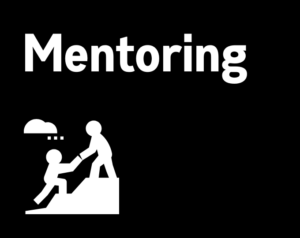Background
Effective development and retention of talented early-career researchers (ECRs) is essential to the continued success of biomedical science research fields. To this end, formal mentorship programmes (where researchers are paired with one or more mentors beyond their direct manager) have proven to be successful in providing support and expanding career development opportunities. However, many programmes are limited to pools of mentors and mentees within one institute or geographical area, highlighting that cross-regional connections may be a missed opportunity in many mentorship schemes.
Methods
Here, we aimed to address this limitation through our pilot cross-regional mentorship scheme, creating reciprocal mentor-mentee pairings between two pre-established networks of Alzheimer’s Research UK (ARUK) Network-associated researchers. We carefully created 21 mentor-mentee pairings between the Scotland and University College London (UCL) networks in 2021, with surveys conducted to assess mentor/mentee satisfaction with the programme.
Results
Participants reported very high satisfaction with the nature of the pairings and the mentors’ contribution to the career development of mentees; a majority also reported that the mentorship scheme increased their connections outside of their home network. Our assessment of this pilot programme is that it supports the utility of cross-regional mentorship schemes for ECR development. At the same time, we highlight the limitations of our programme and recommend areas for improvement in future programmes, including greater consideration of support for minoritized groups and the need for additional training for mentors.
Conclusions
In conclusion, our pilot scheme generated successful and novel mentor-mentee pairings across pre-existing networks; both of which reported high satisfaction with pairings, ECR career and personal development, and the formation of new cross-network connections. This pilot may serve as a model for other networks of biomedical researchers, where existing networks within medical research charities can act as a scaffold to build new cross-regional career development opportunities for researchers.
 A new paper published in AMRC Open Research “Creating connections: developing an online space for cross-regional mentorship and network building in the dementia research field” details how the Alzheimer’s Research UK local networks in Scotland and at University College London, collaborated to create a successful mentoring scheme. The programme which was the forerunner to the new ARUK national mentoring programme, worked to pair early career researchers with senior colleagues, each pairing meticulously planned to ensure both the mentor and the mentee could meet their objects.
A new paper published in AMRC Open Research “Creating connections: developing an online space for cross-regional mentorship and network building in the dementia research field” details how the Alzheimer’s Research UK local networks in Scotland and at University College London, collaborated to create a successful mentoring scheme. The programme which was the forerunner to the new ARUK national mentoring programme, worked to pair early career researchers with senior colleagues, each pairing meticulously planned to ensure both the mentor and the mentee could meet their objects.
 Print This Post
Print This Post




